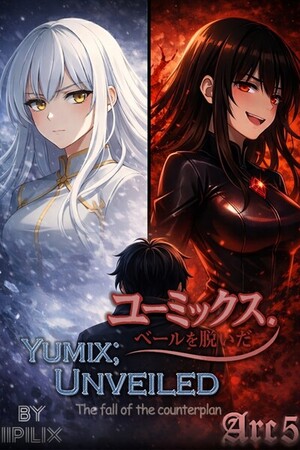Chapter 9:
The King's Doppelgänger
Vagrants of Aeridor Valeria
“That is sufficient.”
The pervasive murmuring of the crowd was sliced away as the thunderous command echoed through the air. A mountain of a man, likely in his thirties or forties, strode forward from the ranks. He possessed an aura of raw, commanding power that seemed to physically push the onlookers back, his face a landscape of weathered stone fixed in a perpetual scowl. It was immediately apparent that this man was a figure of considerable authority.
He offered the ambassador a curt, almost imperceptible nod of acknowledgment. I could not decipher whether his grim mask was a permanent feature of his disposition or a specific reaction to the current situation. The ambassador returned the gesture and, with a brief glance in my direction, nudged me to move forward.
We were diverted from the path leading toward the military encampment. Instead, our escort guided us toward a smaller, adjacent floating island, which we reached via a second cable car. Atop this secluded isle stood a solitary, majestic edifice, its spires and grandiosity reminiscent of the opulent cathedrals of old Europe.
This, however, was no somber, grey monolith. The structure was a symphony of light and color. Its walls, the precise shade of a cloudless dawn sky, were punctuated by vibrant stained-glass windows depicting saints and sagas. Sunlight glinted off the roof, a brilliant cascade of gleaming, bone-white tiles. The envoy clarified that this was the hallowed ground where the summoning ritual was conducted—the very chamber from which I had been violently torn from my own world a month prior.
“You are to have an audience with the King,” he had informed me. “This is it?” I had asked. “Not the royal palace?” He explained that I was to meet the monarch just before he presided over another summoning. A cold realization dawned on me. I had been mistaken. It seemed they were on the verge of dragging another unfortunate soul into this world.
A disturbing line of reasoning began to crystallize in my mind. If one were to strip away the regal pretense, to peel back the grand narrative of saving the world, what was truly left? In its most fundamental form, was this not simply kidnapping? My own circumstances had been an anomaly, a fortunate exception to the rule; the summoning had, in its own strange way, been my salvation. But what if they ripped someone from a life they cherished, only to saddle them with the crushing responsibility of vanquishing a demon lord? Following that logic to its conclusion, I had to wonder: were this King and his court the true villains of the story?
Lost in these unsettling thoughts, we arrived at the summoning cathedral. The entrance was framed by two enormous marble doors, each easily five meters in height. Their magnificent presence was amplified by exquisitely rounded tops, each one culminating in a masterpiece of etched artistry and scripture.
The envoy exchanged words with the guards stationed outside, instructing them to announce our arrival to the King. After a brief interval, one of the guards who had vanished inside returned and beckoned for us to enter. We crossed the threshold without a moment’s hesitation.
The interior was just as I remembered it, yet it seemed to have expanded, now perceived through a lens of newfound composure. We found ourselves in a rectangular antechamber that served as a prelude to a much larger, circular hall. The antechamber itself was perhaps ten meters wide and fifteen long, while the ceiling soared to a height of at least ten meters, its dome a canvas for lavish decorations and a breathtaking painted mural that perfectly mimicked the heavens. The circular hall beyond was easily twenty meters in diameter. In its exact center rested a low, round altar—an ethereal fusion of polished marble and what appeared to be pure, flawless crystal.
The King and his personal entourage were gathered near the altar. Their collective gaze followed our advance as we halted a respectful distance from the royal assembly. The guards who had escorted me, still on high alert from our last tense encounter, instinctively closed ranks, forming a protective circle around me.
Before anyone could deliver a formal address, I elected to seize the initiative. My voice broke the solemn hush, laced with purposeful indifference. “Well, Kazir! Decided to let me go, have you? The little princess already informed me the whole affair was a misunderstanding.”
I refused to adopt a posture of subservience, to grovel for his pardon. He was a king, certainly, but that title gave him no inherent authority over me, even if I had been in the wrong for striking him during his supposed act of mercy. It was a test. If he was truly the wise and benevolent ruler he was meant to be, surely he could tolerate a little sarcasm.
“You insolent savage! Who granted you leave to speak? You stand in the presence of His Majesty, King Ramstaros Imber IX the Fifth! You are not fit to—”
A snort escaped me, then another, followed by a full-throated laugh that I could not have suppressed if my life had depended on it. “Pfft! Bwahahaha!”
“YOU—!” The retainer and several of his colleagues flushed a deep crimson, their faces contorted with rage.
“My apologies,” I managed, wiping a tear from the corner of my eye. “I couldn’t help myself! That name—Imber—it is just too perfect. He is the spitting image of someone I used to know.” I was right; he was a dead ringer for Kazir. This observation, naturally, only served to further incense the King’s retainers. A sharp pang of self-awareness struck me. I had just lectured a child on controlling her temper, and here I was, gleefully disregarding my own counsel. Still, that name. Imber! I never would have guessed.
With a single, raised hand, the King quelled the disturbance just as the knights at his side tensed, ready to restrain me. A lone eyebrow arched in irritation and a flicker of impatience crossed his features, but he masterfully smothered the impulse to anger. A surprisingly composed monarch, then. It explained his restraint during my initial assault. Perhaps he was a decent king after all. I resolved to give him a more impartial assessment.
“Enough,” the King said, his tone cool but absolute. “Let us dispense with these pleasantries. I have been informed that upon your arrival in our world, you—the one called Axel—were not granted the Deity’s Boon. Is that assessment correct?”
King Ramstaros—old man Imber—regarded me with a sharp, glacial stare. Despite the absurd name, he possessed an undeniable air of nobility. I felt a brief twinge of regret for my earlier outburst.
“That’s correct. I have no special abilities, at least none that I have become aware of.”
“No surge of power? No newfound aptitude for pyromancy, or some such? Even a general sense of enhanced well-being could be considered a gift.”
“Well, I haven’t gotten motion sick since I arrived. Does that count?”
“No,” he stated flatly. “Dismiss the thought.” He turned away, his voice laced with an air of finality. “I had held out a sliver of hope, but you are a failure, after all.”
Any nascent respect I might have been developing for him evaporated in that single, cold instant. At his core, he was still just King Imber.
“We shall commence the summoning,” the King announced, his attention already shifting to the task at hand. “Prepare the Sovereign Aetrium Crystal.”
His attendants moved with practiced, synchronized efficiency. Some wheeled in a large, cart-like apparatus shrouded by a heavy drape, while others began to examine the glowing, cryptic runes inscribed in a circle upon the altar. The object on the cart was taller than a man and nearly twice the bulk of an old-world telephone booth; it had a commanding presence.
The attendants carefully drew back the drape, revealing an enormous, flawless crystal housed within a transparent, glass-like casing. The sight was breathtaking, another stark reminder of this world’s unearthly wonders. The crystal was shaped like an inverted teardrop, formed from three smaller, intertwined spires that splayed out at the top and base. It was a semi-translucent marvel of shifting, internal hues. From a soft, embryonic yellow at its base, the color bled upwards into a milky rose-quartz, which in turn deepened into the serene blue of the upper atmosphere. Each of the three spires was not a solid band of color, but a dynamic, swirling blend of these shades. As sunlight streamed through the cathedral’s domed glass ceiling, the crystal’s surface seemed to drink it in. Rather than simply reflecting the light, it internalized it, emitting a soft, internal luminescence of its own. The longer I stared, the more mesmerizing it became. The King, too, seemed captivated, his gaze lost in its swirling depths. This object was clearly priceless, rare—perhaps one of a kind—and absolutely vital to the summoning ritual.
“King,” I said, tearing my eyes from the crystal and returning my focus to the matter at hand. “What happens to me now?”
He lingered on the crystal for a moment longer before slowly turning his gaze back to me. “I made a promise to my daughter before she departed. You will be granted your freedom. However, we will offer no aid in your new life. You are hereby severed from any connection to the crown. And understand this: we lack the means to return you to your world.”
“My freedom? That is all I require. I have no need of your help, and I have no particular desire to return. I suppose you have no use for a ‘failed’ hero.”
“That is correct.” His gaze drifted back to the shimmering crystal. “A failed hero is not merely a disappointment,” he concluded, his voice as cold as the jewel he was assessing. “He is a liability.”




Please sign in to leave a comment.